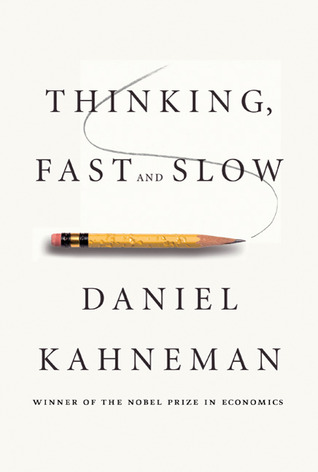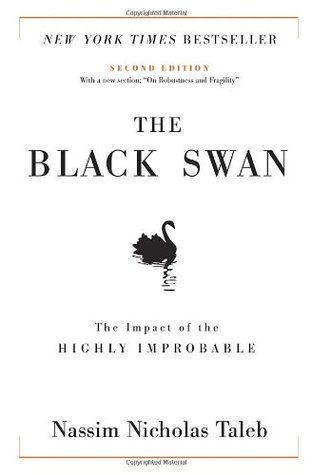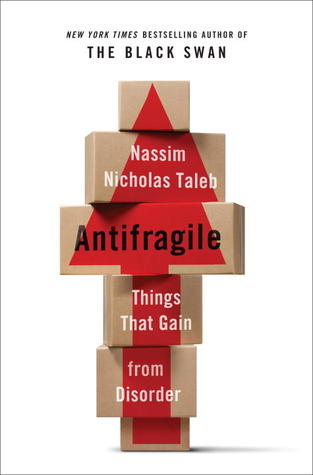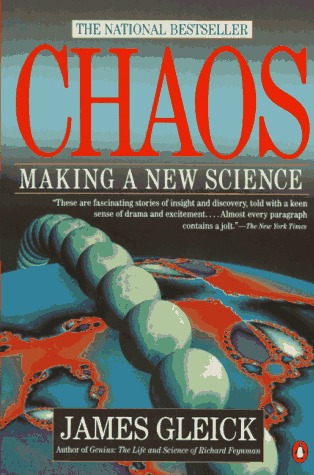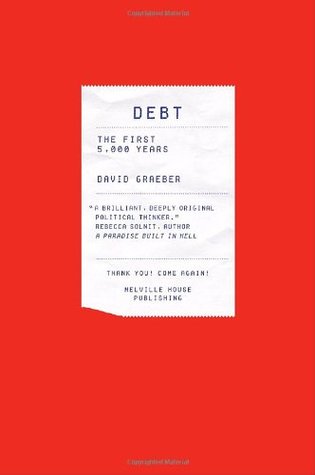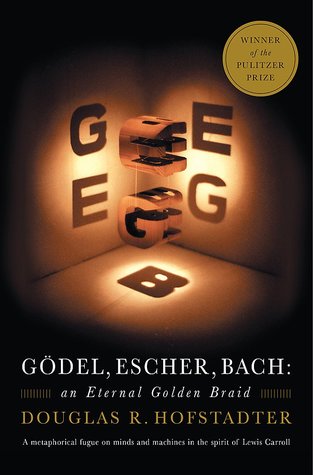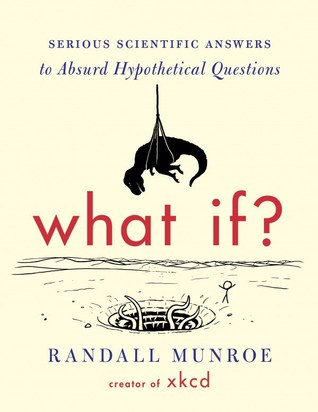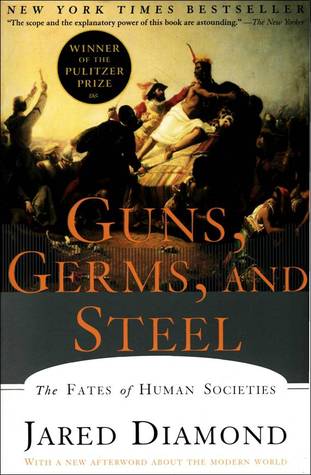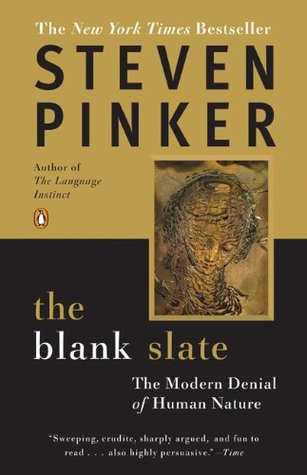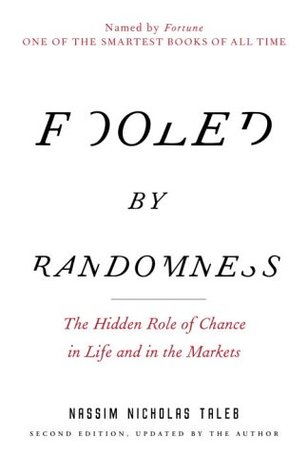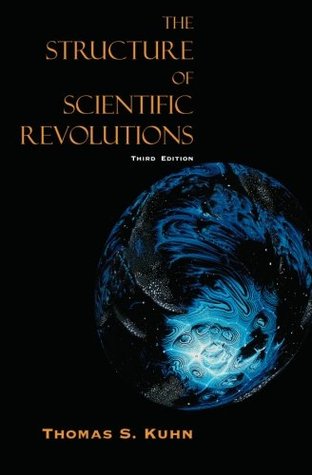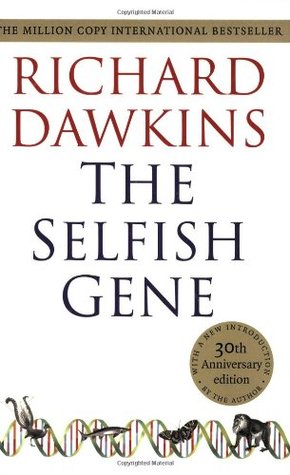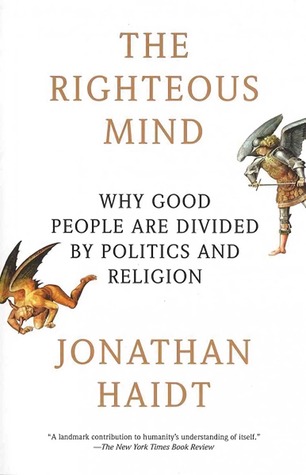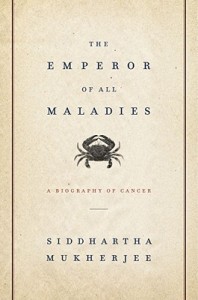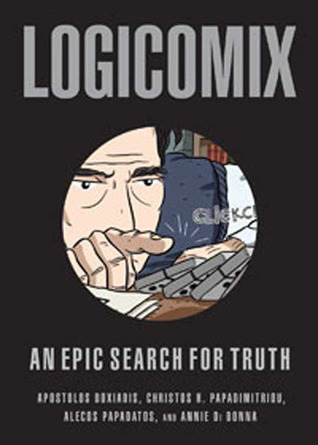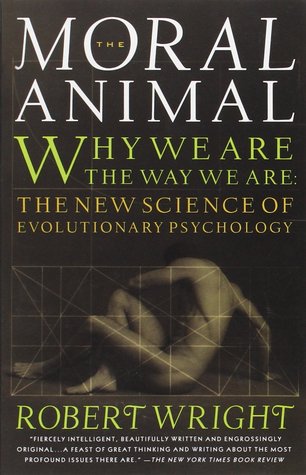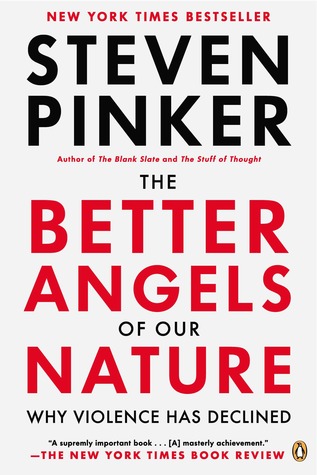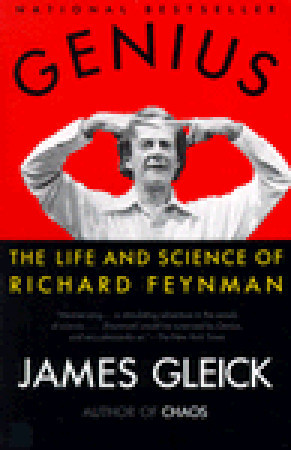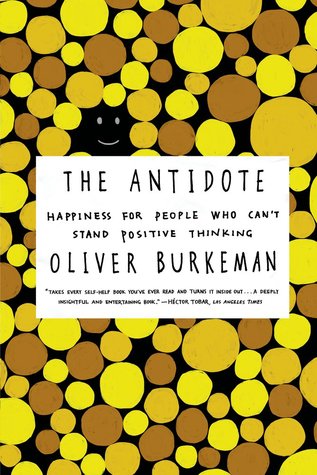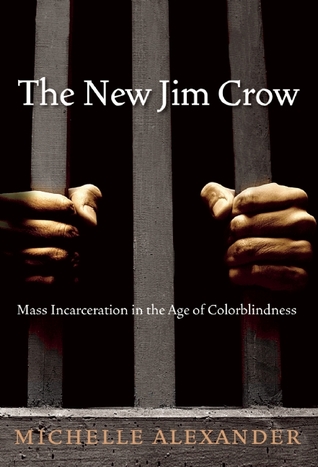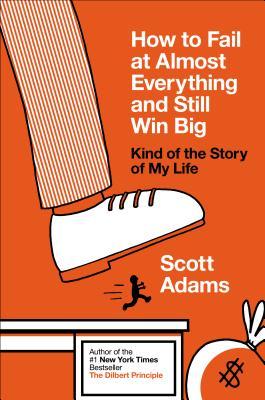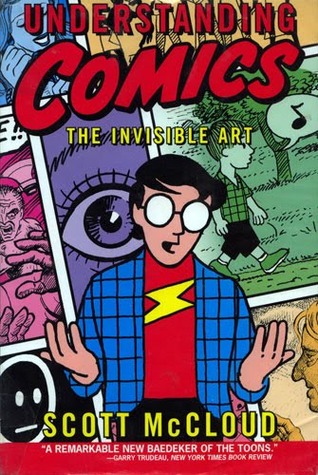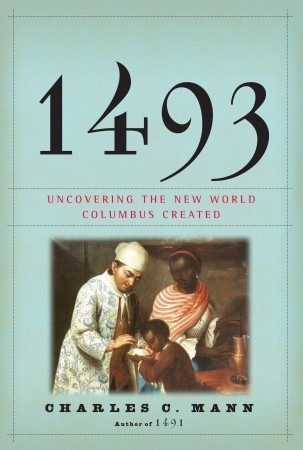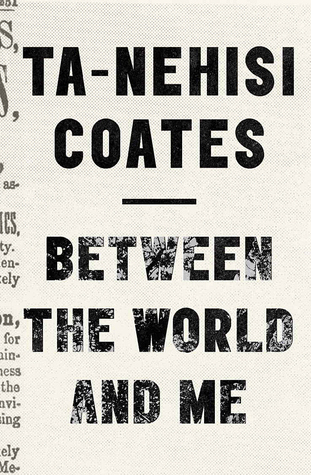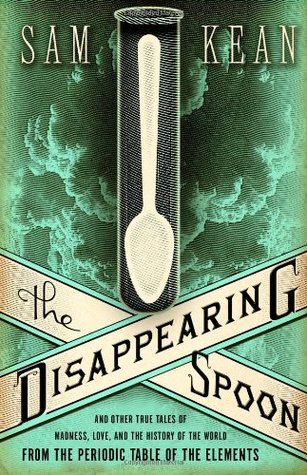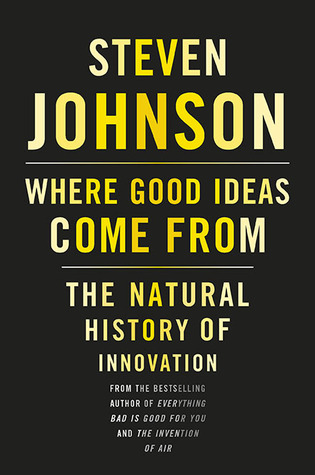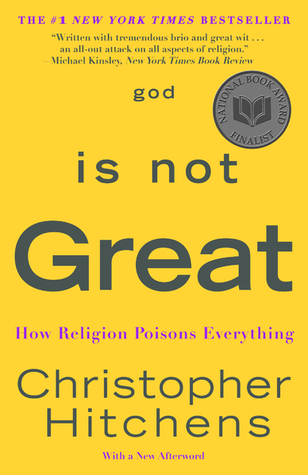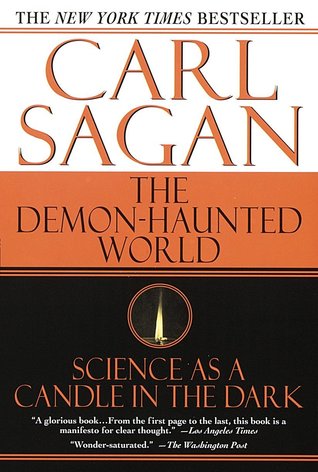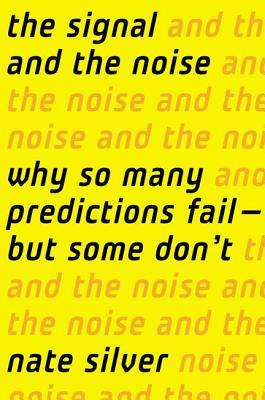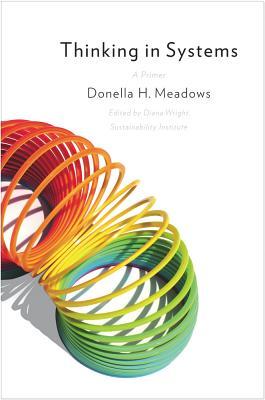Powered by a book like {foo}
Recommendations based on The Information: A History, a Theory, a Floodby James Gleick
* statistically, based on millions of data-points provided by fellow humans
Thinking, Fast and Slow
by Daniel Kahneman
An exploration of the two systems of the mind, and how they influence decision-making.
In the highly anticipated Thinking, Fast and Slow , Kahneman takes us on a groundbreaking tour of the mind and explains the two systems that drive the way we think. System 1 is fast, intuitive, and ... (Goodreads)
The Black Swan: The Impact of the Highly Improbable
by Nassim Nicholas Taleb
A study of the role of randomness in life, and how it can lead to unexpected events.
A black swan is a highly improbable event with three principal characteristics: It is unpredictable; it carries a massive impact; and, after the fact, we concoct an explanation that makes it appear ... (Goodreads)
Antifragile: Things That Gain from Disorder
by Nassim Nicholas Taleb
An exploration of how disorder and chaos can lead to strength and resilience.
From the bestselling author of The Black Swan and one of the foremost philosophers of our time, Nassim Nicholas Taleb, a book on how some systems actually benefit from disorder. In The Black Swan ... (Goodreads)
Chaos: Making a New Science
by James Gleick
Investigation of complex systems and the impact of chaos on scientific understanding.
A work of popular science in the tradition of Stephen Hawking and Carl Sagan, this 20th-anniversary edition of James Gleick’s groundbreaking bestseller Chaos introduces a whole new readership to ... (Goodreads)
Debt: The First 5,000 Years
by David Graeber
A history of money and debt, exploring the roots of our current financial system.
Before there was money, there was debt Every economics textbook says the same thing: Money was invented to replace onerous and complicated barter systems—to relieve ancient people from having to haul ... (Goodreads)
Gödel, Escher, Bach: An Eternal Golden Braid
by Douglas R. Hofstadter
A complex exploration of logic, mathematics and art, exploring their relationships and interconnections.
Douglas Hofstadter's book is concerned directly with the nature of “maps” or links between formal systems. However, according to Hofstadter, the formal system that underlies all mental activity ... (Goodreads)
What If? Serious Scientific Answers to Absurd Hypothetical Questions
by Randall Munroe
A humorous exploration of science, tackling the most bizarre questions with real-world scenarios.
Randall Munroe left NASA in 2005 to start up his hugely popular site XKCD 'a web comic of romance, sarcasm, math and language' which offers a witty take on the world of science and geeks. It now has ... (Goodreads)
Guns, Germs, and Steel: The Fates of Human Societies
by Jared Diamond
Tracing the origins of human civilizations through the lens of geography, technology, and biology.
"Diamond has written a book of remarkable scope ... one of the most important and readable works on the human past published in recent years." Winner of the Pulitzer Prize and a national bestseller: ... (Goodreads)
The Blank Slate: The Modern Denial of Human Nature
by Steven Pinker
The exploration of the science of human nature, including the implications for society.
In The Blank Slate , Steven Pinker explores the idea of human nature and its moral, emotional, and political colorings. He shows how many intellectuals have denied the existence of human nature by ... (Goodreads)
Fooled by Randomness: The Hidden Role of Chance in Life and in the Markets
by Nassim Nicholas Taleb
A critical examination of the impact of randomness/chance in life and financial markets.
Fooled by Randomness, is a standalone book in Nassim Nicholas Taleb’s landmark Incerto series, an investigation of opacity, luck, uncertainty, probability, human error, risk, and decision-making in a ... (Goodreads)
The Structure of Scientific Revolutions
by Thomas S. Kuhn
An analysis of how scientific progress is made, and the role of paradigms and paradigmatic shifts.
A good book may have the power to change the way we see the world, but a great book actually becomes part of our daily consciousness, pervading our thinking to the point that we take it for granted, ... (Goodreads)
The Selfish Gene
by Richard Dawkins
A study of evolutionary biology, exploring how genes act and how they impact behavior.
Inheriting the mantle of revolutionary biologist from Darwin, Watson, and Crick, Richard Dawkins forced an enormous change in the way we see ourselves and the world with the publication of The ... (Goodreads)
The Righteous Mind: Why Good People Are Divided by Politics and Religion
by Jonathan Haidt
Exploring the underlying moral foundations of political and religious beliefs and how they shape our views.
An alternate cover edition of ISBN 9780307377906 can be found, here., Why can’t our political leaders work together as threats loom and problems mount? Why do people so readily assume the worst about ... (Goodreads)
The Emperor of All Maladies: A Biography of Cancer
by Siddhartha Mukherjee
A comprehensive account of the history and science of cancer, from its origins to modern treatments.
An alternative cover edition for this ISBN can be found, here, and, here,. The Emperor of All Maladies is a magnificent, profoundly humane “biography” of cancer - from its first documented ... (Goodreads)
Logicomix: An Epic Search for Truth
by Apostolos Doxiadis
A historical exploration of the development of logical thinking, from ancient Greece to the 20th century.
Set between the late 19th century and the present day, the graphic novel Logicomix is based on the story of the so-called "foundational quest" in mathematics. Logicomix intertwines the philosophical ... (Wikipedia)
The Moral Animal: Why We Are the Way We Are - The New Science of Evolutionary Psychology
by Robert Wright
A scientific exploration of how evolutionary psychology shapes human behavior and morality.
Are men literally born to cheat? Does monogamy actually serve women's interests? These are among the questions that have made The Moral Animal one of the most provocative science books in recent ... (Goodreads)
The Better Angels of Our Nature: Why Violence Has Declined
by Steven Pinker
Investigation into the causes of violence and the reasons why it has decreased in modern society.
Believe it or not, today we may be living in the most peaceful moment in our species' existence. In his gripping and controversial new work, New York Times bestselling author Steven Pinker shows that ... (Goodreads)
Genius: The Life and Science of Richard Feynman
by James Gleick
A biography of physicist Richard Feynman, exploring his life and scientific contributions to quantum mechanics and the Manhattan Project.
An illuminating portrayal of Richard Feynman—a giant of twentieth century physics—from his childhood tinkering with radios, to his vital work on the Manhattan Project and beyond Raised in ... (Goodreads)
The Antidote: Happiness for People Who Can't Stand Positive Thinking
by Oliver Burkeman
Exploring alternative paths to happiness, rejecting traditional approaches of positive thinking.
Success through failure, calm through embracing anxiety—a totally original approach to self-help Self-help books don't seem to work. Few of the many advantages of modern life seem capable of lifting ... (Barnes & Noble)
The New Jim Crow: Mass Incarceration in the Age of Colorblindness
by Michelle Alexander
Exploring the roots and reality of systemic racism in the U.S. criminal justice system.
"Jarvious Cotton's great-great-grandfather could not vote as a slave. His great-grandfather was beaten to death by the Klu Klux Klan for attempting to vote. His grandfather was prevented from voting ... (Goodreads)
How to Fail at Almost Everything and Still Win Big: Kind of the Story of My Life
by Scott Adams
A humorous, uplifting look at how to find success by embracing failure.
Scott Adams has likely failed at more things than anyone you’ve ever met or anyone you’ve even heard of. So how did he go from hapless office worker and serial failure to the creator of Dilbert , one ... (Goodreads)
Understanding Comics: The Invisible Art
by Scott McCloud
Exploration of the visual language of comics and its role in storytelling.
Scott McCloud's Understanding Comics is a seminal examination of comics art: its rich history, surprising technical components, and major cultural significance. Explore the secret world between the ... (Goodreads)
1493: Uncovering the New World Columbus Created
by Charles C. Mann
A fascinating account of the global changes that occurred after Columbus' voyage, including the exchange of plants, animals, and diseases between the Old and New Worlds.
From the author of 1491—the best-selling study of the pre-Columbian Americas—a deeply engaging new history of the most momentous biological event since the death of the dinosaurs. More than 200 ... (Goodreads)
Between the World and Me
by Ta-Nehisi Coates
A letter to his son, exploring the realities of racism in America.
“This is your country, this is your world, this is your body, and you must find some way to live within the all of it.” In a profound work that pivots from the biggest questions about American ... (Goodreads)
The Disappearing Spoon: And Other True Tales of Madness, Love, and the History of the World from the Periodic Table of the Elements
by Sam Kean
Fascinating tales of discovery and exploration of the elements of the periodic table.
Why did Gandhi hate iodine (I, 53)? Why did the Japanese kill Godzilla with missiles made of cadmium (Cd, 48)? How did radium (Ra, 88) nearly ruin Marie Curie's reputation? And why did tellurium (Te, ... (Goodreads)
Where Good Ideas Come from: The Natural History of Innovation
by Steven Johnson
A study of the patterns and environments that foster innovation, from the coffeehouses of the Enlightenment to the internet age.
The printing press, the pencil, the flush toilet, the battery–these are all great ideas. But where do they come from? What kind of environment breeds them? What sparks the flash of brilliance? How do ... (Goodreads)
God Is Not Great: How Religion Poisons Everything
by Christopher Hitchens
Criticism of organized religion, arguing it is the root of much suffering in the world.
With his unique brand of erudition and wit, Hitchens describes the ways in which religion is man-made. "God did not make us," he says. "We made God." He explains the ways in which religion is ... (Goodreads)
The Demon-Haunted World: Science as a Candle in the Dark
by Carl Sagan
A critical look at superstition and pseudoscience, advocating for the power of science and reason.
How can we make intelligent decisions about our increasingly technology-driven lives if we don’t understand the difference between the myths of pseudoscience and the testable hypotheses of science? ... (Goodreads)
The Signal and the Noise: Why So Many Predictions Fail—But Some Don't
by Nate Silver
An exploration of the art and science of prediction, examining why some predictions succeed while others fail.
Nate Silver built an innovative system for predicting baseball performance, predicted the 2008 election within a hair's breadth. He solidified his standing as the nation's foremost political ... (Goodreads)
Thinking in Systems: A Primer
by Donella H. Meadows
An exploration of how systems work, how they are managed and how they can be improved.
Meadows’ Thinking in Systems , is a concise and crucial book offering insight for problem solving on scales ranging from the personal to the global. Edited by the Sustainability Institute’s Diana ... (Goodreads)
